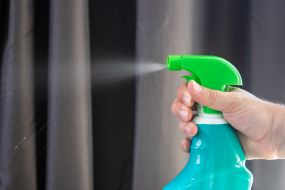What You Should Know About Trauma Clean Up?

There are many things that we pray we never have to go through or have to do. This could be never having to go to the funeral of a child or witnessing a horrific accident. Another thing that we never want to have to do is clean up a trauma scene. There is a lot of emotional pain that comes with witnessing a traumatic event and there could be major emotional trauma when having to clean up after something has happened to a loved one. There are professionals that are trained in trauma clean up that should be called instead.
What is professional trauma clean up
This is a profession that most people do not even know exists until they need to call them for help. Years ago, the burden of cleaning up at the scene of a traumatic event was something expected to be dealt with by whoever owned the location where it occurred. That could have been a stranger to the victim, or a loved one. This often-caused additional pain and suffering. There was clearly a need for professional help in this niche area, and trauma clean up companies were formed to fill this need. Their employees are trained in the safe, efficient, removal of biohazardous materials, and they work for certified businesses that meet municipal, state and federal standards for disposing of these materials.
People who specialize in trauma clean up have experience in handling contaminated materials, and often have a working relationship with local and federal authorities. These teams also learn to use proper personal protective equipment (PPE), which includes more than just a face mask and rubber gloves. Often, respirators and breathing apparatuses, protective coveralls and even overshoes are required to protect the cleaners or the scene from additional damage and contamination. In depth training about pathogens and biohazards is needed for professional clean up teams too. Having an understanding of what pathogens are and the dangers they pose helps keep technicians safe and allows them to clean thoroughly to ensure a space is decontaminated. Many illnesses, such as HIV and Hepatitis can be transmitted through blood, so safety protocols are very important in this line of work.
Trauma clean up professionals do more than just wiping down surfaces with bleach. The nature of these incidents and the hazardous material that they can produce requires an in-depth cleaning that may involve removing and disposing of flooring, linens and even furniture. Fluids can seep under carpeting and floorboards, and in some cases, it can get stain paint or be absorbed into drywall. While it may look clean on the surface there are health concerns such as pathogen related illnesses, or lung issues from mold if the cleanup is not completed properly. Professional trauma cleaners are trained to ensure that all aspects of a scene are cleaned and that the risk of health hazards has been mitigated.
Who does professional trauma clean up?
This is not an industry that many people are capable of working in. The people employed in this field often have experience with these types of working conditions and can handle the psychological pressure that it can place on a person. The men and women who work as trauma scene cleaners are compassionate and understand the turmoil that people are going through when they call them in. The teams work with loved ones in a sympathetic manner to ensure that they are supported through these difficult times and these professionals lean on their training and personal experiences to guide families through the process.
More than a crime scene.
Although many people hear “trauma clean up” and automatically think of yellow crime scene tape sealing up a room or building where a horrendous crime was committed, it’s not always the case. You may be surprised to learn that these professionals get called into a variety of situations to lend their expertise. Events such as suicide, accidents, natural death, or even car accidents, depending on circumstances, will require specialized cleaning professionals.
